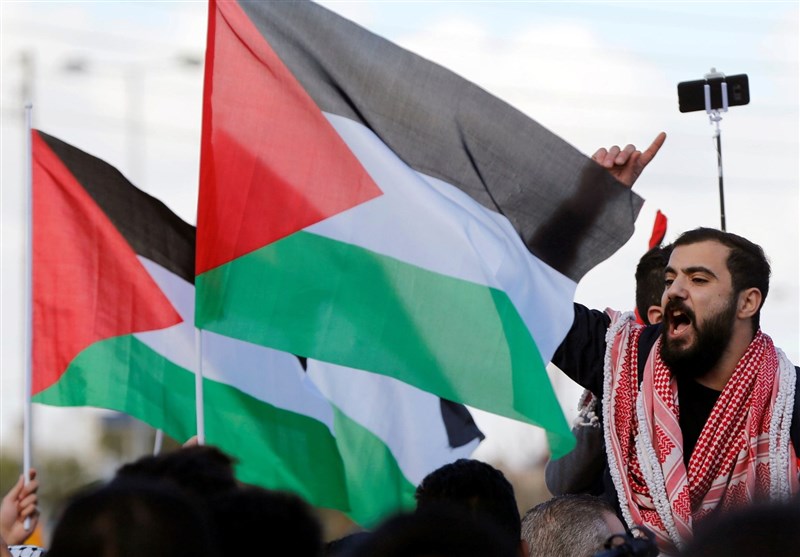Mansour Barati told the Strategic Council on Foreign Relations about researching the history of relations between Jordan and the Zionist regime that if we take a historical look, Jordan is in charge of dealing with the affairs of Quds, and mainly East Quds, which is known as the old city, was under Jordanian rule until the 1967 Six-Day War.
Referring to the result of this opinion poll which indicates that the majority of people in Jordan (77 percent) consider the issue of Palestine as the main political problem in the Middle East and which requires a solution, he said “for this reason, the issue of the Zionist regime is an important issue for the public opinion of Jordan, and they consider the Zionist regime as one of their enemies; We have also witnessed several direct or indirect wars between Jordan and the Zionist regime.”
Pointing to the history of wars between Jordan and the Zionist regime, he said that from the time of the establishment of the Zionist regime until the 1990s, the relations between the Zionist regime and Jordan were mostly hostile, and four wars took place; including the 1949 war, which is referred to in Arab public opinion as Nekbah or catastrophe due to the complete defeat of Jordan.
According to this expert, the next war was 1956, known as the Suez Canal Crisis, in which most of Egypt was involved, but Jordan helped Egypt, which also led to the defeat of the Arabs. He added that the third war was the so-called six-day war of 1967 in which Jordan played a direct role and was defeated and lost some areas.
Barati said that in this war, the Zionist regime occupied the Sinai Desert from Egypt and occupied the West Bank which was under the control of Jordan and the Golan Heights from Syria. As mentioned, East Quds was also occupied by the Zionist regime in this war.
He stressed that the fourth war was the 1973 war, in which Jordan had no direct role, but helped Egypt and Syria, but Arabs were again defeated in the war.
This expert of the Zionist regime affairs said that from the last war in 1973 until the 1990s, a kind of ceasefire was established between the Zionist regime and Jordan, and the two sides were in a state of neither war nor peace. According to Barati, finally in 1994, a year after the Oslo Accords, the Zionist regime and Jordan signed a recognition agreement, which took place with the direct participation of the United States; so from 1994 onwards, the two sides established formal relations.
He explained that the model of peace established between the Zionist regime and Jordan is a kind of cold peace; That is, the two sides, which were previously at war with each other, shifted their relationship from hostile to neutral.
Barati said Jordan is the second Arab country after Egypt that recognized the Zionist regime, adding that however, part of Jordanian public opinion has always been sensitive to the issue of Palestine and the Zionist regime as well as the agreements between Jordan and the Zionist regime. They cover an important part of society.
Asked about the approach of the Jordanian government towards the normalization of relations with the Zionist regime, he said that the official opinion of the Jordanian government on the normalization of relations with the Zionist regime is based on a two-state solution. In other words, they say that the Zionist regime should recognize the independent Palestinian state so that in return, they can normalize their relations with the Zionist regime.
He added that Jordan has not changed its policy on Palestine since the recent Abraham Peace Accords were clinched.
Barati said that nearly half of Jordanians (47 percent) describe Jordan’s position on the Palestinian-Israeli conflict as passive, and in fact, part of Jordanian public opinion protests Jordan’s sympathetic policy toward Israel.
“This situation could provide an opportunity for the resistance to recruit from inside Jordan and attract some of the supporters of the Zionist regime’s exclusion from inside the country. Of course, this is unprecedented, and there exists some Jordanian nationals among the members of the Axis of Resistance”.
He explained that this situation shows that the relationship between the Zionist regime and Jordan has remained based on the idea of cold peace, contrary to what is in the idea of an Abraham agreement based on warm peace. Therefore this has caused relations between the two sides to remain at the governmental level.
According to Barati, contrary to this situation, we can take the example of the UAE, which ties the interests of its citizens to the interests of the citizens of the Zionist regime and is going to receive electricity from the Zionist regime in exchange for water.
He added that “in the model adopted by the UAE, it tries to gradually moderate the negative attitude towards the Zionist regime among its citizens, but this has not happened among the Jordanian citizens and their interests are not tied to the interests of the Zionist citizens.”
Asked about the consequences of the anti-Zionist inclinations among a big portion of people in Jordan which are against the government views in this respect, he said that the group may increase pressure on the Jordanian government to reduce its ties with the Zionist regime, in which case Jordan will no longer be able to easily expand its ties with Tel Aviv.
“Considering the conditions, it seems that the possibility of developing relations between the Zionist regime and Jordan with this view of public opinion is very limited, almost impossible, as a recent poll by the Center for Strategic Studies at the University of Jordan showed that 81 percent of Jordanians oppose normalization of relations between Arab countries and the Israeli regime.










0 Comments